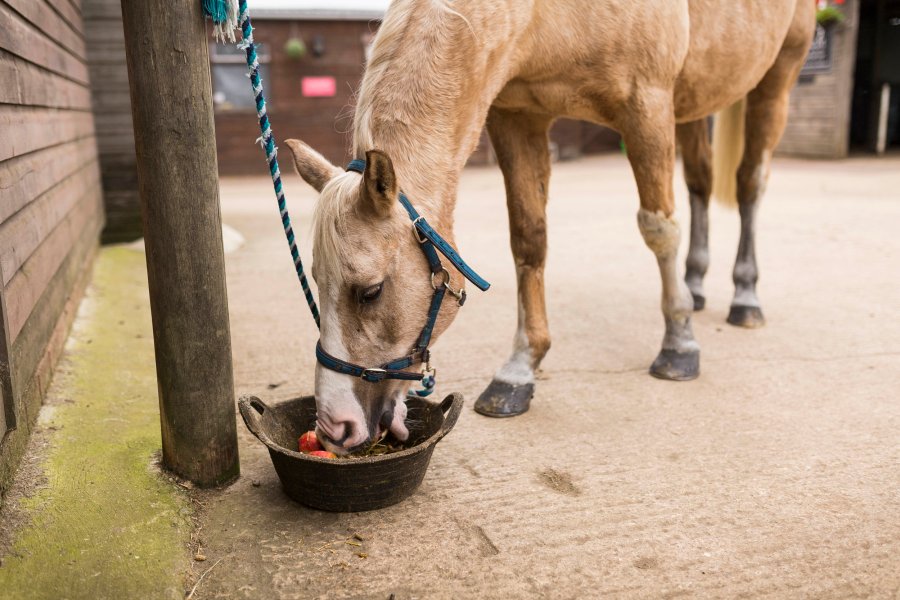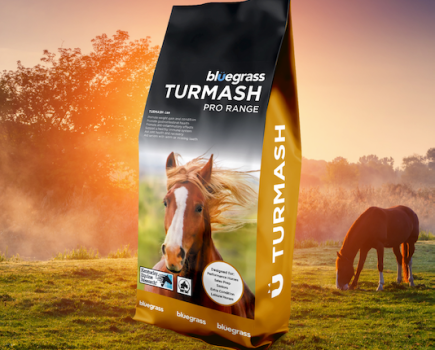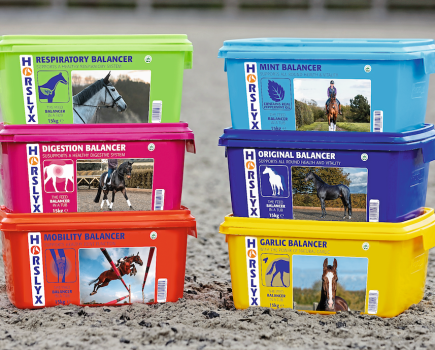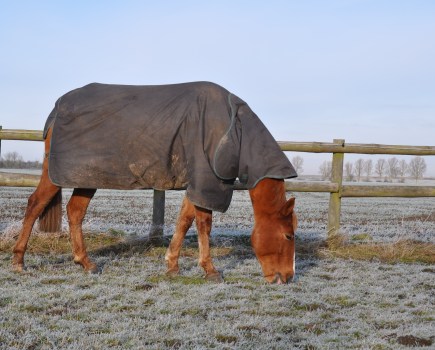As your horse gets older, you may notice he no longer keeps his weight like he used to over winter. Here, we catch up with SPILLERS equine nutritionist, Clare Barfoot, and get her top tips on feeding an older horse over winter.
A horse who struggles to keep his weight
First of all, it’s important to rule out any obvious issues such as a worm burden, an underlying clinical condition (e.g. Cushing’s), or poor dentition. Once you’ve ruled these out, you can consider nutrition.
Feed him fibre
Digestion in otherwise healthy older horses and ponies doesn’t appear to be any less efficient, but they may find it harder to chew long fibre, especially if they’ve lost molar teeth.
A lack of good quality fibre in the diet is often the most common contributing factor to older horses losing condition. If you notice your horse is quidding (spitting out balls of half chewed grass or hay), it’s important to replace his hay with an appropriate hay replacer.
Fibre can come in many different forms so look for feeds such as high fibre cubes, un-molassed sugar beet, grass/alfalfa nuts and short chopped fibres. All of these products can be used as full or partial hay replacers, but if you’re unsure how to use them, call a nutritional care line for advice.
Balance his diet
You’ll probably find once you’ve sorted out a good supply of quality fibre your horse will maintain his weight much better. If this is the case, providing a balanced diet should be the next priority. This can be achieved by feeding a balancer and one that’s designed for older horses and ponies.
Look for a conditioning senior feed if your horse needs extra calories to maintain his weight, but If he’s prone to laminitis or has Cushing’s, make sure you choose a low sugar and starch option. These may not be labelled as senior feeds, so if this is the case it’s best to speak to a nutritional care line.
Other considerations are keeping your horse well rugged up so he doesn’t use unnecessary calories keeping warm, also make sure he’s not being ‘bullied’ in the field, as younger more dominant animals can keep older ones off the best grass!










